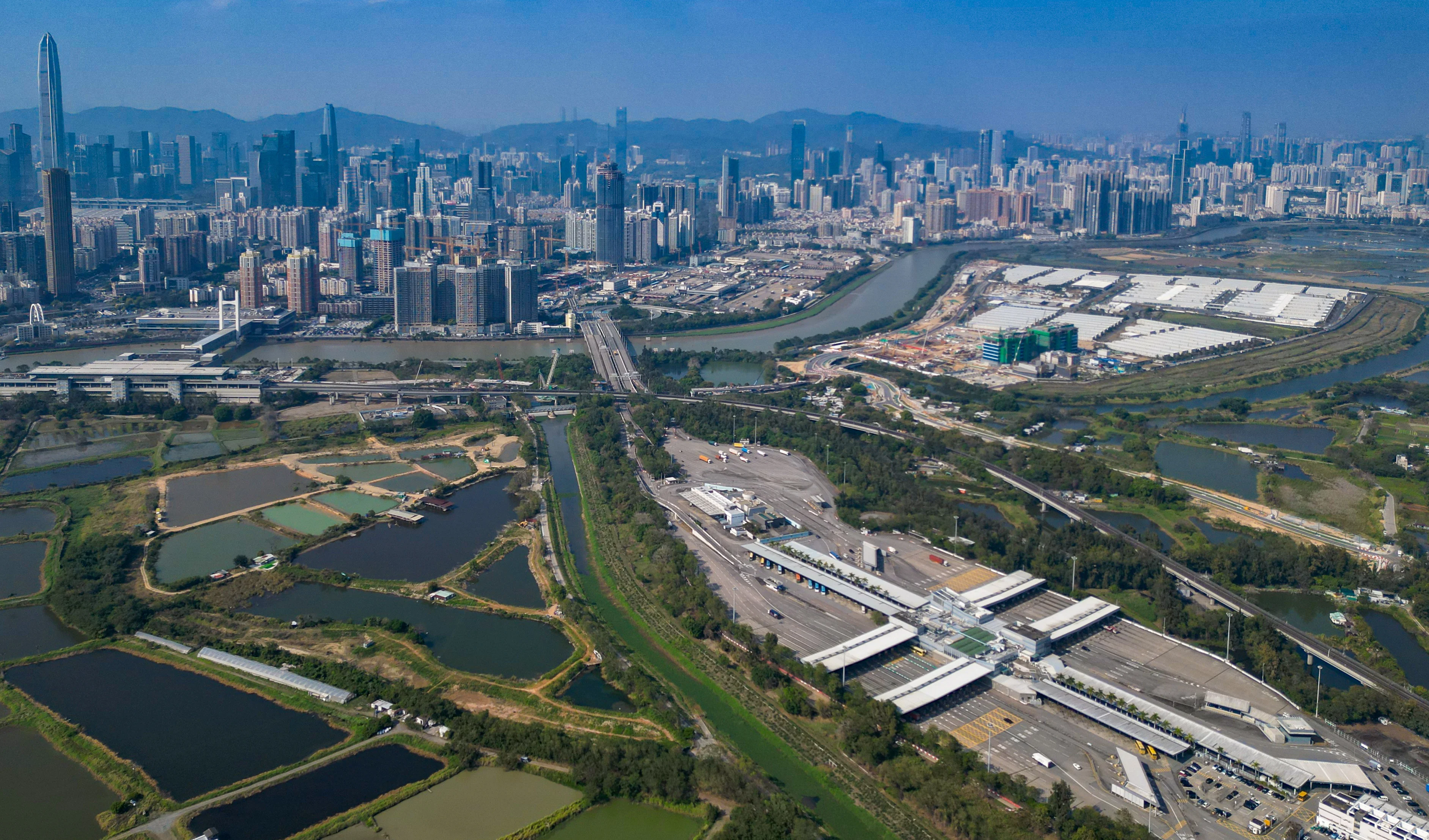By Vivian Au
Copyright scmp

Hong Kong’s Northern Metropolis near the border with mainland China will have its own set of laws designed to speed up its development, with statutory procedures simplified and some funding approvals allowed to bypass the legislature, the city’s leader has said.
In his penultimate policy address on Wednesday, Chief Executive John Lee Ka-chiu also revealed that the first of three university towns in the megaproject would have its site ready for use next year.
The Northern Metropolis project, first announced in 2021, aims to turn 30,000 hectares (74,132 acres) of land into an engine for economic growth and a housing hub.
According to a government source, authorities will establish one or more dedicated companies to manage the various industrial parks within the megaproject as part of the new measures to speed up development.
“We suggest that specific estimated budgets within the dedicated funding channels [for approved companies] should not require approval from the Legislative Council,” a government source said.
However, those companies would still need to report to Legco periodically, and the details of the legislation would be subject to change after a two-month public consultation early next year, the source said.
The legislation, expected to be passed and implemented next year, will cover rules for managing the cross-boundary flow of data, capital and biological samples in designated areas. Such samples cannot currently be transported freely across the border.
Asked whether introducing dedicated legislation would cause the megaproject to become “a special administrative region inside a special administrative region”, Lee rejected the suggestion.
“That is not to say robbery will not be a crime inside the metropolis,” he said.
He stressed that all laws would still apply within the Northern Metropolis, except that some specific ones related to development would be altered to speed up processes.
The mega development is also likely to benefit from a land tenancy rental mechanism to be put in place for the whole city, with the more flexible system making projects within the Northern Metropolis more attractive to developers.
Under the mechanism, a tenant, which can be an enterprise or a developer, can renew its land rental agreement twice with the authorities, with a total of 21 years allowed instead of the current seven in most cases.
Lee said that he would also raise the level of decision-making for the project and he would lead a committee to streamline administrative workflows and remove unnecessary barriers.
Financial Secretary Paul Chan Mo-po will lead a working group to devise development, financing and operation models, starting with an industrial park in Hung Shui Kiu. Chief Secretary Eric Chan Kwok-ki will lead another group to study the development model for three planned university towns.
The source said a non-statutory company would be set up to manage a 23-hectare plot at Hung Shui Kiu, which includes an eight-hectare site earmarked for multi-storey buildings for modern industry.
Finance chief Chan said the new policy blueprint would help the city attract global companies and turbocharge advances in industries such as artificial intelligence, biotechnology and healthcare.
Sources also noted a clear timeline for the three university towns. The first in Hung Shui Kiu, now increased from five to nine hectares, will be ready for use by next year.
The second in Ngau Tam Mei will be ready by 2028, while the third in the northern New Territories will be ready by 2030.
“The land reserved in the other two areas, apart from the university town in Hung Shui Kiu, could have room to be expanded,” the insider said, adding that the total area of the three towns had been increased from 90 to about 95 hectares.
Our Hong Kong Foundation, a leading think tank, said the Northern Metropolis policies, including the introduction of dedicated legislation to expedite its development, could make the plan more comprehensive.
“For next steps, the government should explain how all the departments and working groups will coordinate with one another,” foundation vice-president Ryan Ip Man-ki said.



